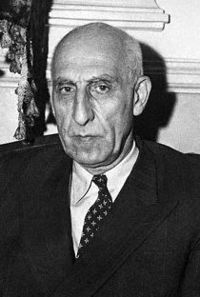In the late 19th and 20th century, women's lives were so restricted by society’s ideas of gender roles. Many women, Miss. Ogilvy for example, have been courageous enough to rebel against the "norm." These women wanted to do more for them and not just get married and have children.
Before the war, Miss Ogilvy's identity was defined by being different and not belonging. She was not only an outsider in society, but she was excluded by all of her family members.
“She saw herself as a queer little girl, aggressive and awkward because of her shyness: a queer little girl who loathed sisters and dolls, preferring the stable-boys as companions, preferring to play with footballs and tops, and occasional catapults.”
“True enough in her youth she had gloried in her strength, lifting weights, swinging clubs and developing muscles…”
“She remembered insisting with tears and some temper that her real name was William and not Wilhelmina.”
Miss Ogilvy just couldn’t adapt to the world's stereotyped pattern. Even her mother called her a "very odd creature" and told her that "muscles looked so appalling in evening dress-a young girl ought not to have muscles.” Everyone around Miss Ogilvy emphasized the importance of finding a husband and marrying. Her sisters Sarah and Franny spent almost all of their energy in the matrimonial market. After the death of their father, the family became more dependent on Miss Ogilvy to take on the “masculine role” and deal with things they wouldn’t bare to be bothered with- such as finances.
At the beginning of the war, Miss Ogilvy realizes she now has a chance to try and do something a woman normally wouldn’t do. At age 56, she cuts her hair, goes to London and bothers authorities until they finally allow her to participate in the war, and form her own ambulance unit.
Everything changes when Miss Ogilvy enters the war. Not only does she find herself but she was finally doing something that made her happy. There were so many of “her kind” and she was mirrored by others just like her. The word “Queer” was now used in a different context. It became a word that unified a group with the same identity. Queer was used to describe their uniform- “Queer little forage-caps.” Miss Ogilvy became a very respected and had a glorious career as the Lieutenant Commander of a unit of female ambulance drivers. She faced death and carried many injured soldiers to her ambulances, and despite the gender roles, this is what she loved doing.
Returning home was hard for her, especially going back to her prejudice society and even worse her family. She often dreamed of being back in the trenches. Miss Ogilvy grown used to military commands and often used them at home when she was frustrated by her sisters. No one understood what was going on internally and how unhappy she had to deal with pre-war issues.
“Such a dreadful, violent old thing”
“Poor darling, its shell-shock you know”
After one of the more faithful women from her unit confessed she was going to marry, Miss Ogilvy couldn’t bear it any longer. She was hurt by this and became depressed. A member of her unit is now heterosexual—she is “normal”.
She packed her kit-bag announced abruptly one day “I’m off!”





